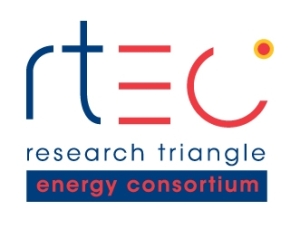About Us
On September 26, 2007, RTEC was launched with the formal signing of the Memorandum of Understanding by our founding members.
Our vision involves having a major impact on solving the nation and the world’s technical, economical, societal and public policy problems related to the use of energy.

In order to fulfill this vision, our mission requires the practice of an integrated approach to addressing the challenges faced in the production,transportation and use of energy today by combining technical, economical and policy considerations to illuminate the most critical issues and sources of uncertainty and risk to facilitate more timely action from researchers, investors, policy makers and consumers.
We take a five step approach to our mission, they are:
- Identify grand challenges in energy today and focus on those with the highest synergy with the capabilities of our four members: Duke University, North Carolina State University, RTI International and The University of North Carolina at Chapel Hill, along with the industry and neighboring organizations.
- Produce definitive studies in select areas which outline the options for responding to the challenges identified, particularly regarding the reduction of economical and environmental risk and uncertainty. These studies will also strive to inform public opinion to influence federal and state policies.
- Conduct research and development at member institutions directed at the technology enablers for the challenges, specifically those that are complementary to the studies mentioned above. Social science research will be conducted to shed light on key drivers, such as consumer acceptance of enabling technologies.
- Sustain the environment as a supportive, on-going response to the challenges, including adherence to the principles of the triple bottom line.
- Discuss important issues facing the environment today. Topics will vary, ranging from mission specific, such as analysis of research findings, to more general issues to engage other participants in the field of energy.
